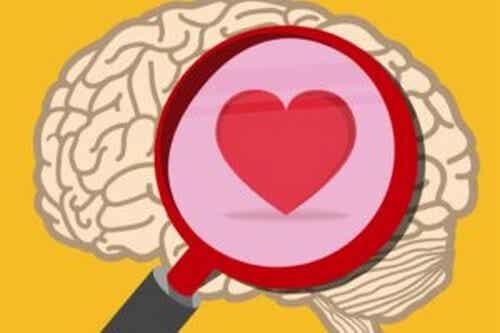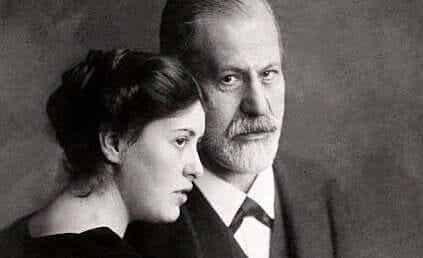Emotional hunger has several consequences for physical and mental health. Distinguishing it from physiological hunger is the first step in being able to act.

Last update: 24 March, 2022
All of us have almost certainly heard of emotional hunger. They may also have said to us many times such phrases as "it's not hungry, it's just boredom". It will also have happened to us to experience it firsthand and perhaps we have also felt overwhelmed. It is therefore useful know the main differences between true hunger and emotional hunger.
Emotional hunger is the use of food to help regulate mood. That is to say, the assumption loses its original meaning: to feed on the elements we need for optimal physical performance.
Feelings such as sadness, anger, frustration or disappointment overwhelm us and take over. If we do not have the tools and personal resources to deal with them, it is easy and tempting to turn to food to calm the discomfort.
However, it should be remembered that consuming certain foods activates the reward system of the brain, which gives pleasant sensations.
However, this well-being is temporary and sooner or later the latent difficulty resurfaces and this time accompanied by a sense of guilt for having eaten more than necessary. To stop the cycle of emotional hunger, we must be able to recognize it and act accordingly.
emotional-hunger-">How to distinguish between true hunger and emotional hunger?
In the following lines we will explore some distinctive features between true hunger and emotional hunger. These will help us understand if we are trying one or the other.
Physiological
- It gradually emerges and increases over time.
- Ha origin in the stomach, since it is a physiological sensation.
- We are aware of what we will eat, we can control it and plan it. We have the possibility to select the food we want to consume at that moment.
- Generally we opt for nutritious foods, healthy and balanced dishes that give us satiety.
emotional
- It appears suddenly. From one moment to the next we feel this sudden craving for food that we must satisfy immediately.
- It does not originate in the stomach, as it is not a physiological sensation. It originates in the mind as a result of certain mental images or representations of food. In other words, when you think or imagine a certain food, the urge becomes so strong that you lose control.
- The diet becomes chaotic. We proceed to an automatic and uncontrolled food intake, without measuring quantities or choosing food carefully. We eat on impulse, out of need, in large quantities and without a prior choice.
- Generally high-calorie and ultra-processed foods are consumed, rich in fats and sugars and with little nutritional value. These foods, in addition to being harmful, do not satiate us or do so for very short periods of time.
How to prevent emotional hunger?
The differences between true hunger and emotional hunger are clear and obvious. If we pay attention to the signs, yesit will be easy to understand what kind of hunger we are dealing with. That said, what can we do once emotional hunger is recognized?
First of all, stay alert. When you feel hungry, you have to stop and try to identify what type it is, following the parameters described above.
It would be very helpful to note which situations or emotions arouse emotional hunger. Some people use it to calm their anxiety, others to stop feeling sadness or emptiness.
Once the triggering emotions have been identified, it's time to acquire or develop healthier coping strategies. We can resort to meditation, diaphragmatic breathing, therapeutic writing… Any option that helps to process the unpleasant emotional state will be suitable.
Conclusions
It is necessary to restore its function to food. We remember and tell ourselves that foods are the body's fuel and not the shortcut of the mind to not face the pain.
To do this, we consciously decide to dissociate food from emotional states. When we feel that the emotional balance is compromised, we opt for a more functional and healthy alternative.
Of course, if the situation is out of your control, it is always possible to contact a professional.


























